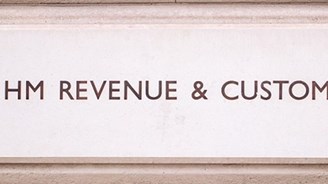Institute of Chartered Accountants in England and Wales practice assurance monitoring report 2021

Earlier this month the Institute of Chartered Accountants in England and Wales (ICAEW) published its Practice Assurance Monitoring report for 2021, which summarises the results of its practice assurance visits in 2020. In this blog, we take a look at a selection of the key themes.
Professional conduct in relation to taxation (PCRT)
In its 2020 visits, ICAEW focussed on how firms incorporated the requirements of PCRT into their processes and procedures.
Prepared jointly by seven professional bodies and associations, including ICAEW, PCRT consists of the fundamental principles and the standards for tax planning. Compliance with PCRT is mandatory for members of the relevant professional bodies and associations - non-compliance may result in disciplinary action.
Despite this, only 82% of firms were able to confirm they had actually read PCRT, and only 69% had a formal mechanism for monitoring compliance with PCRT and their own procedures! Whilst most firms had policies in place for dealing with errors in tax returns, 18% did not have a documented procedure to follow where a client is reluctant to disclose an error. Firms are advised to ensure they read PCRT in full and document related policies and procedures carefully.
Reassuringly, all firms confirmed that they obtain and retain evidence of the client’s approval of tax returns.
Anti-money laundering (AML)
Failure to comply with AML regulations was once again the most common regulatory finding. Whilst further details of this year’s common issues are expected to be published in ICAEW’s Anti-Money Laundering Monitoring report 2021 due out later in the year, the most common problem areas are likely to be similar to those identified in last year’s report which included:
- A lack of, or a weak firm-wide risk assessment
- A lack of ongoing monitoring and update to CDD
- A lack of client risk assessments.
Mercia’s range of AML and compliance products provide guidance and templates for firms to assist in compliance in these areas. We also offer a range of AML training courses and updates.
Clients’ money regulations
Coming in at number two in the list of regulatory findings is non-compliance with the Clients’ Money Regulations. The most common issues include:
- Lack of a bank trust letter to acknowledge the status of the clients’ money bank accounts
- Lack of an annual clients’ money compliance review
- Not using designated accounts when holding over £10,000 for more than 30 days. Mercia can help in a number of ways – these include our clients’ money compliance review service and also answering your technical queries on compliance with the regulations.
Basis of fees and complaints, and engagement letters
At number three on the list is basis of fees and complaints, and engagement letters. This has jumped up from number nine last year. Most issues in this area relate to firms not complying with the basic
requirements to inform clients of the basis on which fees are charged and the firms complaints procedure, including a client’s right to complain to the ICAEW.
Firms are advised to ensure these basic requirements are addressed for all client engagements – not only because they are mandatory requirements, but because compliance in these areas can avoid significant problems later down the line if something goes wrong!
Other matters
Other top findings include:
- Weaknesses in compliance with data protection requirements (including a failure to register with the ICO)
- Failure to notify ICAEW of changes to standing data (e.g. firm structure changes)
- DPB boundary issues (e.g. certain referrals to financial advisers being made which require a DPB licence when the firm does not have one)
- Non-compliance with ethical requirements in relations to referral fees and commissions.
How can Mercia support you?
Our training and products and services are designed to help support accountancy practices to comply with the relevant rules and regulation.
- AML and compliance products
- AML training courses and updates
- Clients’ money compliance review service
- Technical queries
Or contact us to discuss how we can help.
Find out more
Read the Practice Assurance Monitoring report on the ICAEW website



